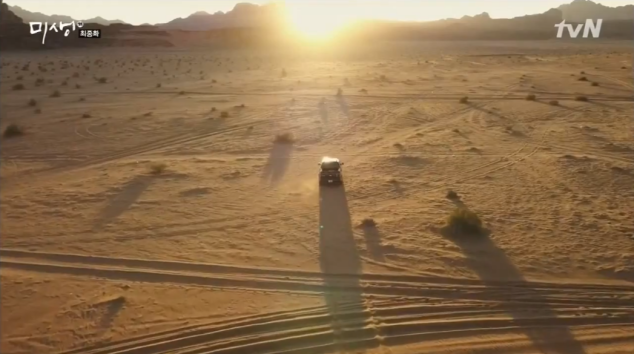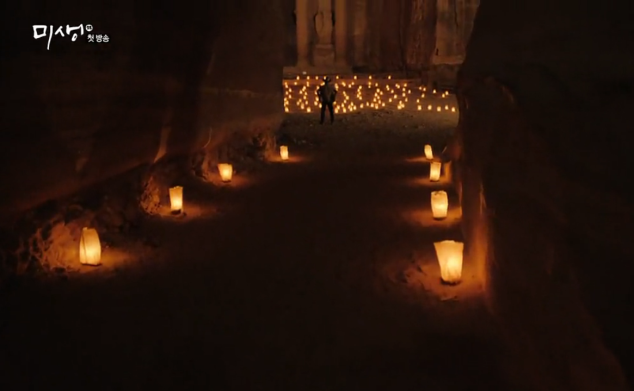Social institutions (i.e. general mechanisms of society and patterns of behavior it supports) can trap individuals in predefined, ill-fitting modes of economic undertakings, relationships and conduct even as they establish order and preserve cherished values. In his early 19th century short stories collection Call to Arms, Chinese literary icon Lu Xun criticized the backward and “cannibalistic” practices of the oppressive, feudalistic system present in China at the time. “Hometown,” a semi-autobiographical narrative, was one of those satirical pieces that highlighted the plight of people marginalized by the system.
As the narrator, Xun, settled back at his ancestral home one desolate winter after spending the past twenty years away from it, he reminisced about a friend from his teenage days, Runtu. The son of a temporary odd-job laborer in his household, Runtu would regale him with descriptions of colorful seashells, jumping fish and fierce badger-like wild creatures at his seaside farm—stuff friends in the latter’s usual social circle did not know. As Xun noted trenchantly, while Runtu was at the seaside, he and his friends could only see the four-sided sky framed by the walls of their courtyards. With the revival of these memories, the man finally relished once more the beauty of his hometown. A surreal image of Runtu flashed across middle-aged Xun’s mind: a warrior-like pubescent charged at an exotic beast eyeing his crops with a pitchfork in a sand field while a golden orb hung above him in the deep blue sky. The beast, however, twisted its body and escaped under his legs.
Runtu, too, had not forgotten their friendship. Three to four days after Xun’s return, he turned up at his home. What entered Xun’s vision, though, was a completely different man: a shabbily dressed farmer with swollen eyes, grayish yellow face and deep wrinkles. In his scaly and clumsy hands he carried a long pipe and a paper bag containing dried peas. Behind him was a shy little boy who was the split image of young Runtu, only thinner and sallower. Runtu looked at Xun with an expression that was at once delighted and tragic. His lips quivered but no words came out. Finally, perhaps deciding to err on the side of caution, he addressed his ex-playmate respectfully, “Old master!” A shiver ran down Xun’s spine.
Xun soon learnt that Runtu, who now resembled his own father, had led a life of misery during their decades of separation. With a large brood of children to feed while coping with famines, heavy taxes and middlemen, bandits and officials who siphoned off what little earnings he could make, Runtu could only shake his head at his circumstances, unable to describe the exact pain in his heart. Taking pity on him, Xun and his mother allowed Runtu to cart away all the household items they did not need when they moved house in some days’ time, and so he picked two tables, four chairs, a scale, a censer, a candle stand and, as fertilizer for his seaside farm, all the ash in the house. Xun’s nephew, meanwhile, befriended the small boy, Runtu’s fifth son. On the day Xun left the ancestral home for good, though, he heard that someone had discovered more than ten utensils from the household hidden inside Runtu’s ash pile. Thief chaser had apparently turned thief.
As the boat departed from his hometown, leaving behind its dark hills and water, Xun did not feel any lingering attachment to the place. His nephew, on the other hand, was lost in thought with his big, black eyes, wondering when he could finalize a play date with the little Runtu-look-alike. A cycle was evidently in place. Nevertheless, the narration ended on an optimistic note:
I chuckled to myself when Runtu asked for a censer and a candle stand, thinking how he could not forget about his superstitious idol worship for even a moment. Yet is not the hope (that the two boys will not grow apart like us) I am talking about an idol made by my own hands? […] Hope cannot be said to be present or absent, just as roads did not originally exist on land—when enough people went a particular way, it became a road.
The last sentence was quoted by Misaeng, a drama similarly portraying individuals entrapped by social norms and subsystems (in this case, the modern-day office), in its finale. But precisely which way should escapees walk? Misaeng reinforced the point with another quotation: Robert Frost’s “The Road Not Taken.” Perhaps then, to avoid defeating the purpose of seeking new roads, they should carve out roads which do not parallel existing ones. Paradoxically, though, a close examination of the poem may reveal a mockery of (i) superficial attraction to unexperienced alternatives and (ii) inflated notions of the consequentiality of decisions driven by such forces. Frost wrote (underlines added for emphasis):
Two roads diverged in a yellow wood,And sorry I could not travel both
And be one traveler, long I stood
And looked down one as far as I could
To where it bent in the undergrowth;
Then took the other, as just as fair
And having perhaps the better claim,
Because it was grassy and wanted wear;
Though as for that the passing there
Had worn them really about the same,
And both that morning equally lay
In leaves no step had trodden black.
Oh, I kept the first for another day!
Yet knowing how way leads on to way,
I doubted if I should ever come back.
I shall be telling this with a sigh
Somewhere ages and ages hence:
Two roads diverged in a wood, and I —
I took the one less traveled by,
And that has made all the difference.

“And looked down one as far as I could, to where it bent in the undergrowth”
There is thus limited wisdom in embarking on a path simply because of its unconventionality. Still, Misaeng offered one final cultural reference: the Incense Route. Stretching from the Mediterranean Sea to India, this ancient network of routes facilitated the trade of incense, spices and other precious goods among the regions but became forgotten for over a thousand years after the commerce declined. Nonetheless, it has not vanished just because it is now invisible. This, the drama noted, applies to childhood dreams too. Hence, the key to breaking free from social shackles and exploring new directions may be to search within ourselves, recalling what kind of person we aspired to be before society imposed its ideas and conventions on us. Examining the validity of the reference itself, however, one may question how pragmatic it is to go down roads that have long proven unviable in modern times. Dreams, too, should perhaps be measured not merely for authenticity but also compatibility with reality.
This brings to mind an advantage of many (albeit not all) prevailing social institutions—their having withstood the test of time. Although there can be tremendous value in charting new paths in many instances, change can be sought within existing ones as well to preserve some of this benefit. With respect to the office, for instance, it may be more efficient to engender a culture that respects employee dignity and allows their talents to flourish to the largest extent possible than to have all disgruntled workers pursue the liberating but relatively risky option of entrepreneurship. In the case of the peasant system, corruption, bureaucracy and family planning can be tackled directly to relieve rural hardship instead of driving unbridled urbanization. At the same time, greater fluidity can be engineered into the social structure so that individuals may move from one subsystem to another with more ease. Indeed, Lu Xun’s childhood friend, whom he modelled Runtu on, had a grandson who attended night classes while keeping his day job as a farmhand. This descendant, Zhang Gui, eventually became a literature researcher and deputy head of none other than Shaoxing Lu Xun Museum. Notably, too, he struck up a friendship with Lu Xun’s son there, and this one lasted till the latter’s death a few years ago.
Hand in hand at times, they even navigated new lands under the same sky.






Special thanks to Jon Awbrey for his expression of support and theotheri
for his expression of support and theotheri  for her well wishes in the prelude to this post.
for her well wishes in the prelude to this post.
A superb post. Worth waiting for. As someone closer to Xun’s situation than to Runtu’s, I can appreciate the wisdom of deciding to take the well-trodden path – perhaps with the hope of improving it. Evolution, if you will, rather than revolution. I appreciate the multi-cultural mix as well.
At the risk of sounding like some “drama evangelist,” the credit really belongs to the wildly popular drama, which brought an English poem, a Chinese novel and a Jordanian heritage site together in a Korean production.